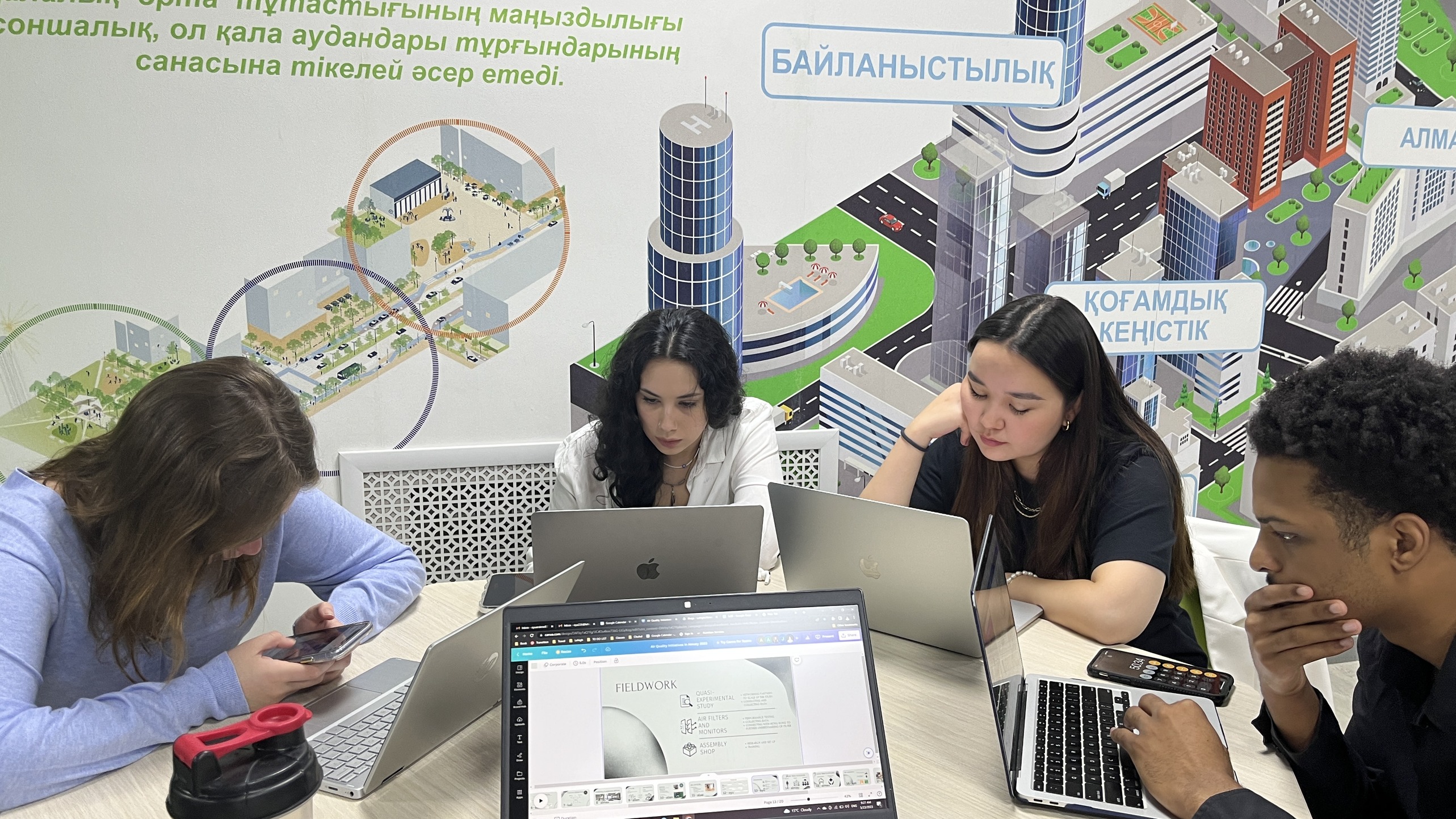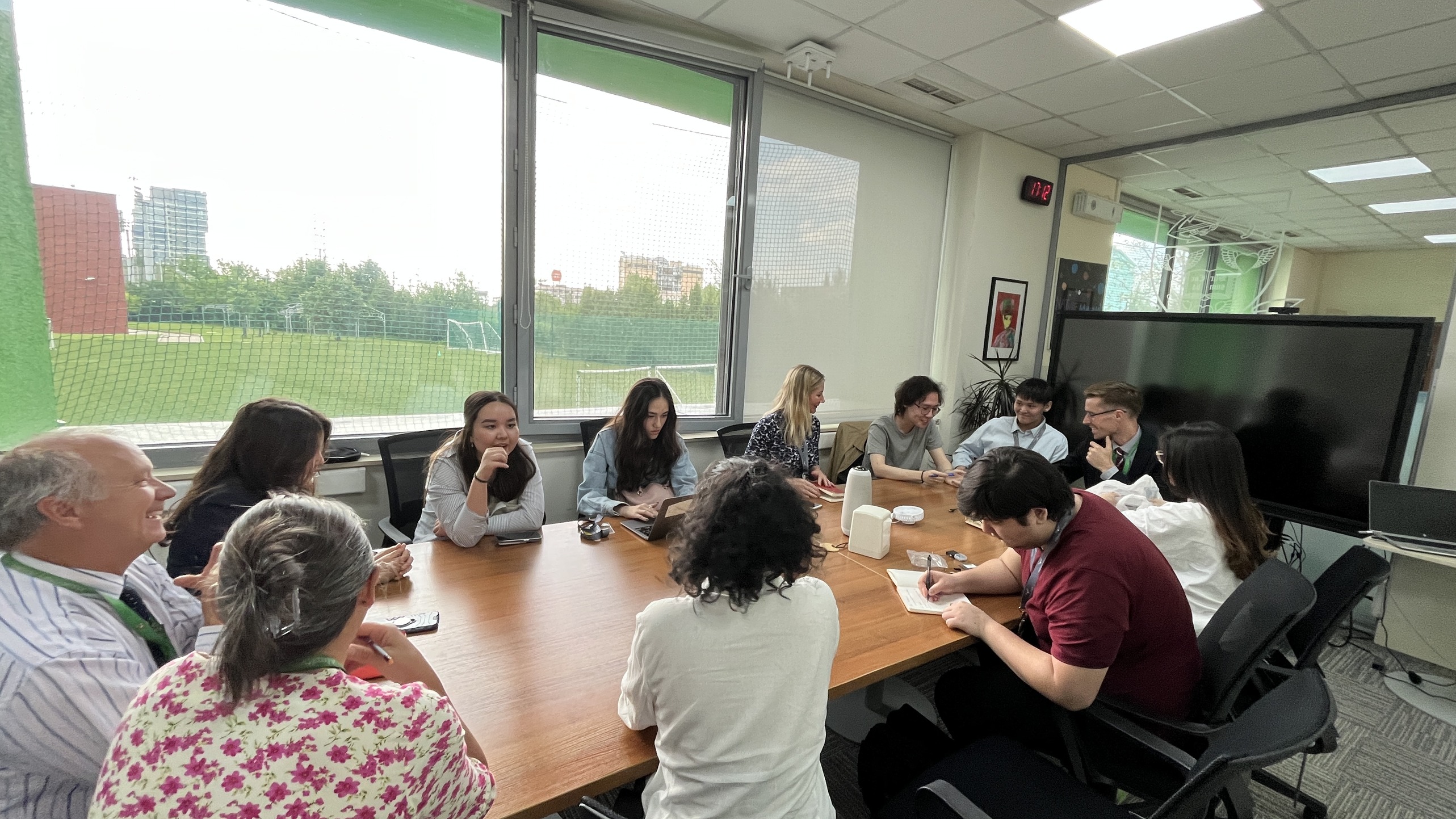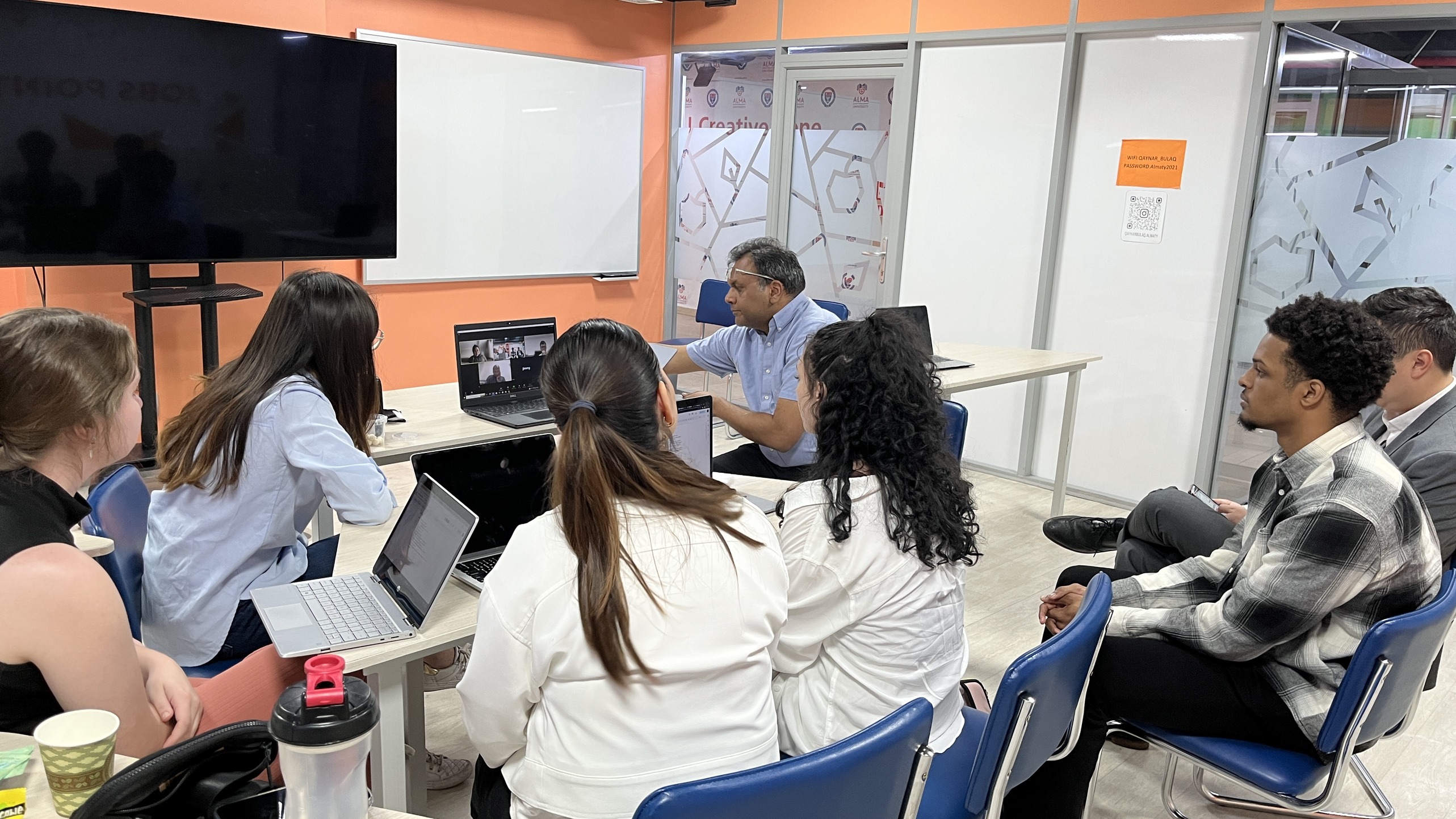Lead Mentor: Dinissa Duvanova, International Relations
Students on the team:
Allen Wilson ‘24
Alua Bekbossynova ‘25
Iz Lucero ‘24
Jessica McCurry ‘26
Kaliana O’Donnell ‘24
Oyu-Erdene Ankhbayar ‘26
Project Description:
According to the World Health Organization, 99% of the world’s population lives in areas where air pollution poses health risks, causing millions of premature deaths worldwide. Yet, the general public and even physicians remain inadequately informed about the health risks of air pollution and benefits of preventing exposure to harmful pollutants. The city of Almaty, in the Central Asian country of Kazakhstan, is emblematic of the complexity of the global public health problem presented by air pollution. Annual averages of PM2.5, PM10, and NO2 pollution concentrations in Almaty exceed the WHO annual limits by 5.3, 3.9, and 3.2 times respectively, while citizens are left feeling helpless to protect their health.
The Breathe Almaty project studies the health, cognitive, and social consequences of air pollution in Almaty and develops effective information and technological approaches for preventing the negative health effects of air pollution. We adopt an interdisciplinary multi-method approach that combines sociological surveying and experimental methods to study residents’ attitudes, behaviors, and the social toll of air pollution. Given the lack of governmental and the citizenry’s commitment to reducing pollution, we will concentrate our efforts on advocacy and prevention. We identify existing informational and technological approaches for preventing pollution’s negative health effects and transform them into low-cost, socially sustainable local solutions, such as information cards, personal air-quality monitors, and home air filters. We are in active collaboration with university and high school students in Almaty to promote behavioral changes among the 1.7 million Almaty residents and empower them to take the lead in protecting their health and environment. We plan to continue publishing the results or our ongoing research in academic peer-reviewed journals and publicizing it through Kazakh media



